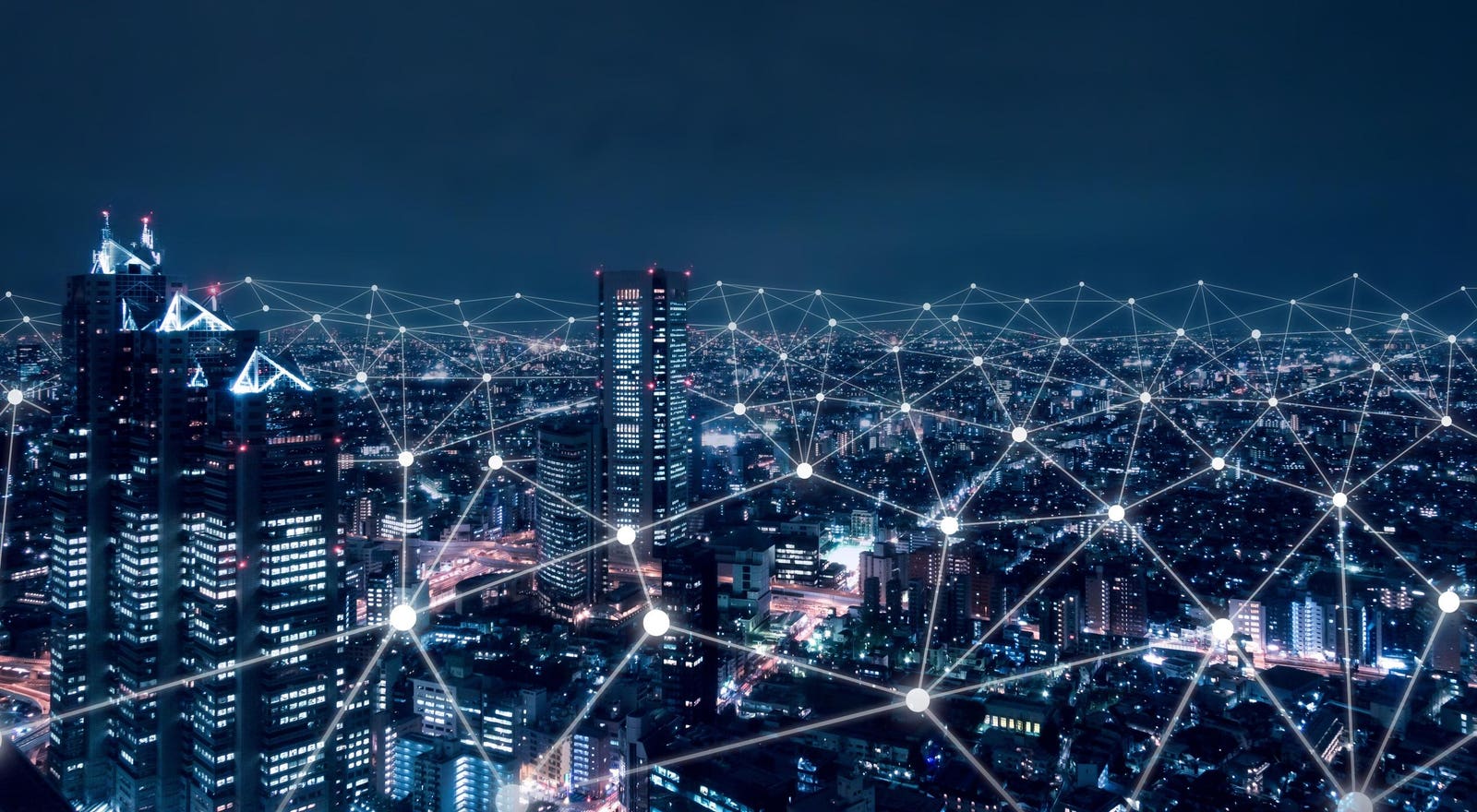From traffic flow to public safety, AI is quietly transforming how cities think, move, and connect.
You might not see it, but cities are becoming smarter.
Traffic lights that think. Buildings that adapt to changing conditions. Public transit that evolves in real-time.
This isn’t just a digital upgrade. It’s a full system rewrite. AI now guides how cities manage energy, move people, deliver services, and interact with residents. From optimizing public safety to fine-tuning street lighting, AI is reshaping urban life at every level.
Rethinking Infrastructure: AI Helping Make Cities Smarter
The core parts that make up cities such its buildings, roads, lights, and transit systems, are getting intelligent upgrades.
Buildings are becoming smarter. AI is being used to monitor energy usage, and adapt accordingly. Lights automatically turn off when rooms are empty. Heating and cooling automatically shifts with the weather and adapts to the time of day. All automated. All efficient. And waste is cut dramatically.
Streetlights are no longer static. With AI, they are able to respond to motion brightening as a pedestrian passes, dimming when streets go quiet. The result is safer neighborhoods and lower energy bills.
Then there’s traffic. Sensors, cameras, and GPS feed AI systems that fine-tune the flow of vehicles through the city. Lights turn green not on a timer, but because the road needs it. Congestion is predicted before it forms. With the help of AI, traffic is able to flow more optimally allowing commutes shrink to shrink and emissions to drop.
Pittsburgh has been seeing the benefits of AI for over a decade. In 2012, it rolled out an AI-powered traffic control system called Surtrac developed by a Carnegie Mellon spin-off. The results were immediate. Wait times at intersections fell by 40%. Emissions dropped 21%. Today, Surtrac’s real-time, adaptive traffic lights respond dynamically to changing traffic patterns, not outdated schedules.
Public transit is getting smarter as well. Buses and trains adjust schedules based on real-time demand, not fixed timetables. Fleet managers know exactly where and when to send extra service. Service isn’t just faster, it’s not just more efficient.
Safer, cleaner, more connected cities
Public safety isn’t just about reacting—it’s about anticipating. AI helps cities do exactly that. AI systems pull insights from surveillance cameras, emergency response systems, and even social media, to flag risks early. Crime patterns surface. Hotspots get attention. Resources deploy where they’re needed most—before things escalate.
In Kuala Lumpur, Malaysia for example, over 5,000 AI-enabled cameras now keep watch across public markets, parks, and busy intersections. These systems capture and interpret footage in real time. From flagging suspicious behavior to spotting illegal ads and traffic violations, the goal is clear: reduce congestion, deter crime, and keep the city running smoothly.
Trash? That’s getting smarter, too. Some cities now have trash bins with sensors that track how full they are. No more overflowing corners or wasted collection runs. AI maps the most efficient routes, predicts waste patterns, and helps boost recycling along the way. It’s cleaner, faster, and a whole lot more cost-effective.
And when it comes to staying connected with residents, AI makes the city feel more accessible. Chatbots answer questions in real time. Virtual assistants handle permits, updates, and service requests—without the wait. It’s not just automation for the sake of efficiency. It’s tech that makes cities feel more responsive, more personal, more human.
As cities grow more complex, AI offers a way to manage the chaos quietly, efficiently, and often invisibly. AI untangles traffic, keeps the streets clean, protects communities, and connects people to the services they need. But this isn’t just about smarter systems. AI is helping cities think, adapt, and care. The future of urban living is evolving, and AI is quietly helping.









